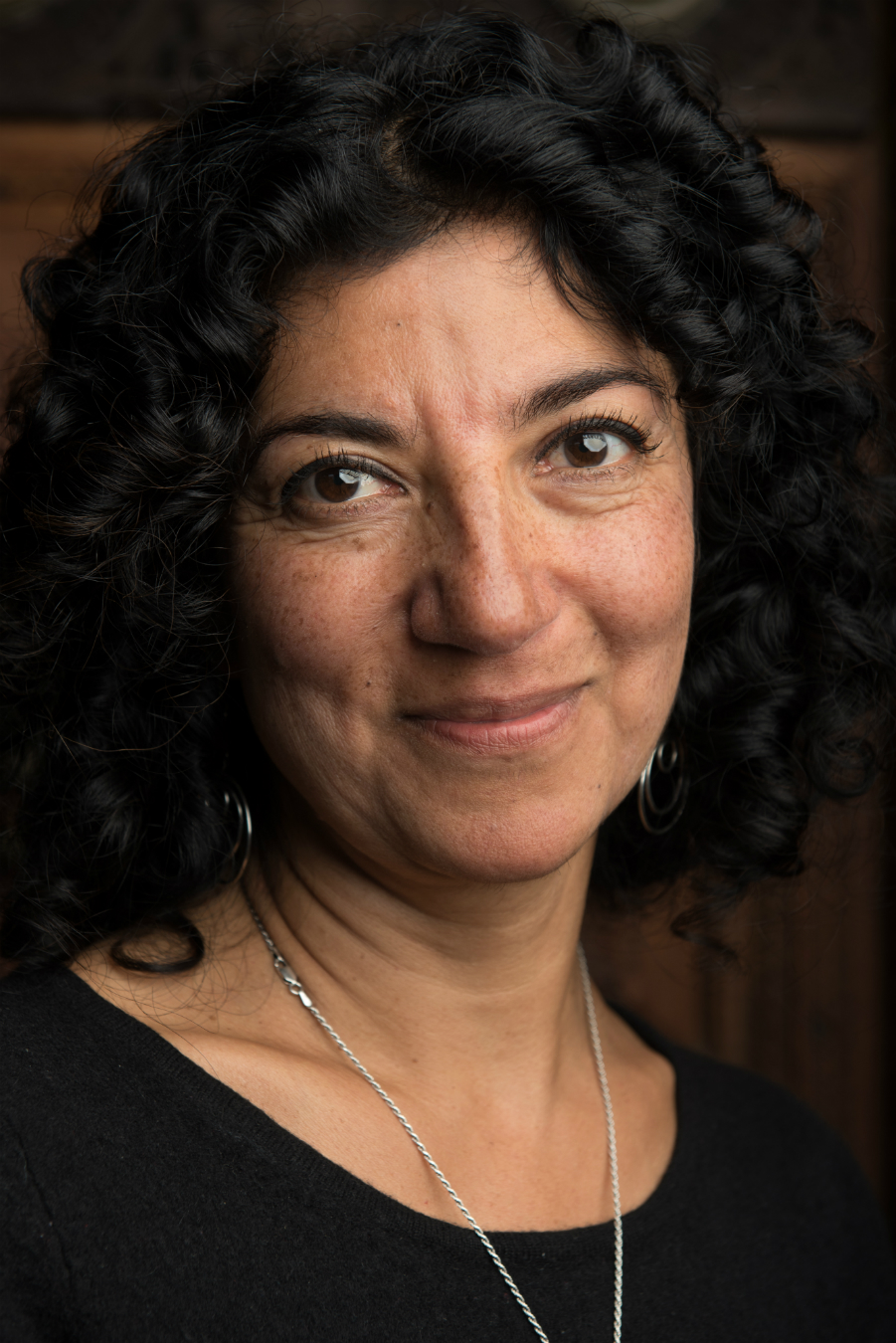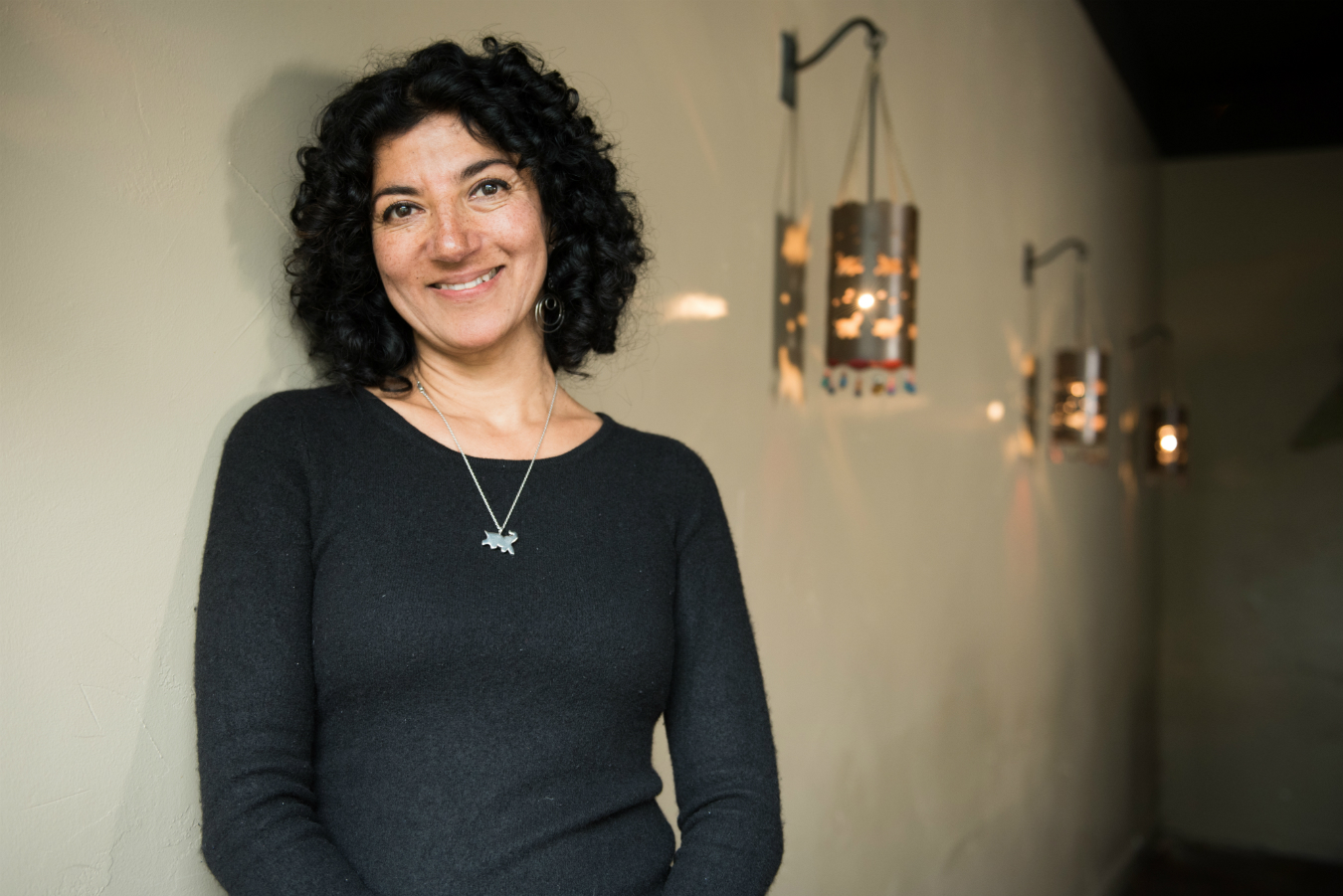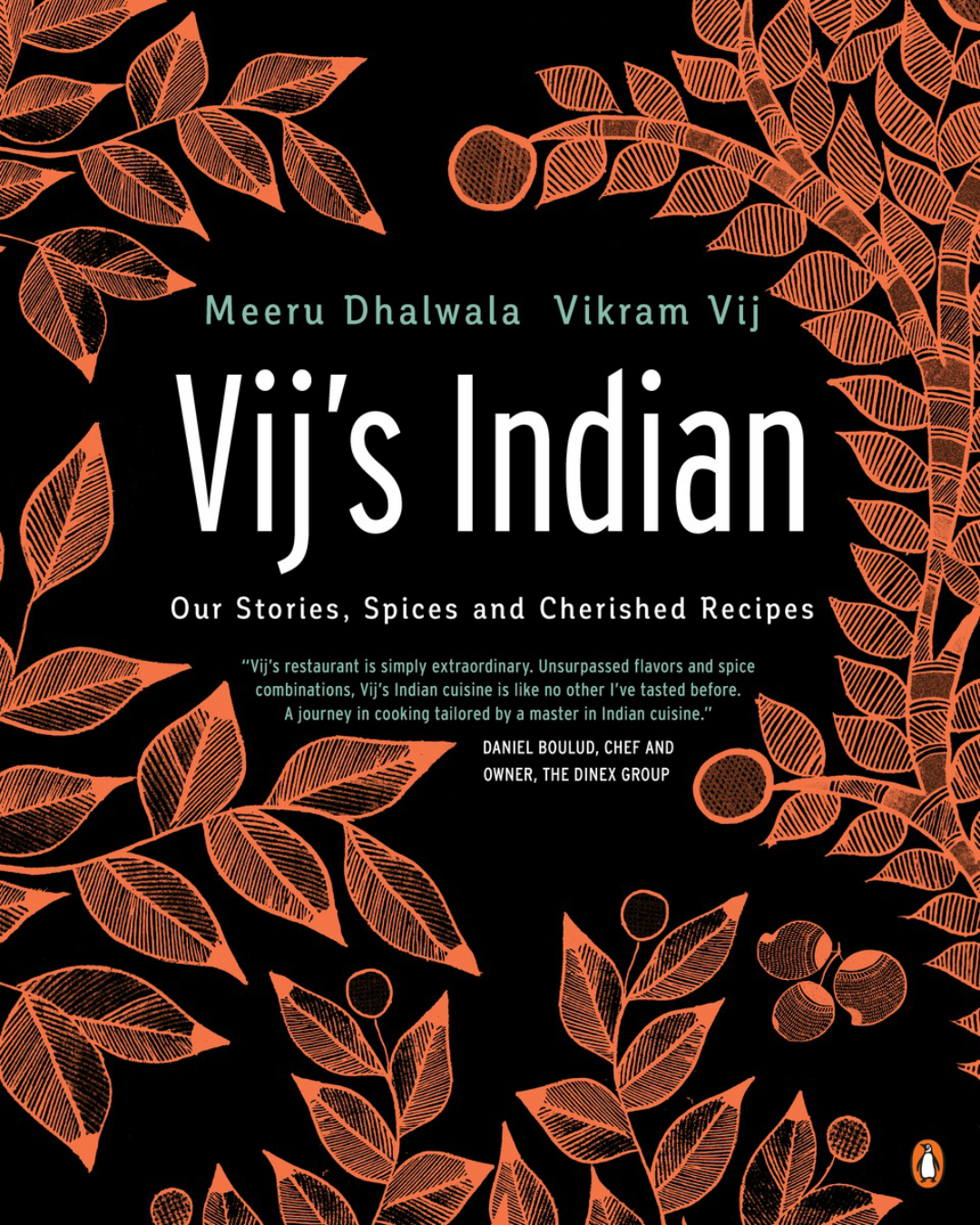Irrepressible. This is the overwhelming first impression you get of Meeru Dhalwala, and nothing is likely to change your mind about it. She bustles down the street, Starbucks cup in hand. “I hit that place every day at four,” she says. “I don’t really drink chai!” She sits down, ready to talk about her latest cookbook, part of a wide-ranging discussion that includes a recent visit back to India, and her love of New York—but almost always, the central point is food. “I think about nothing else, it seems,” she says. “How to cook, why to cook, where do ingredients come from, how can we sustain it all when the planet gets to nine billion people?”
Her business partner and former husband is Vikram Vij, who freely acknowledges that the cookbooks (this, Vij’s Indian: Our Stories, Spices and Cherished Recipes is the third) are “written by Meeru; she does all the recipes.” She acknowledges this, but hastens to elaborate: “The key to our success is we are both good at different things,” she explains. “I have no interest in being any kind of celebrity. I want to be in the kitchen, cooking with the ladies. Vikram is so good at being a host, at celebrating life through our restaurants.” It has been a fruitful partnership, for sure, including the newly opened Vij’s on Cambie, plus Rangoli, where Dhalwala spends the bulk of her time, and a line of packaged products that have a solid place in the market. (The old Vij’s, next door to Rangoli, now serves as a private event space.)
The latest book is “recipes for home,” Dhalwala says, explaining that the only thing holding her back from getting it out sooner was “not having enough recipes, enough to tell. It is fundamentally an Indian cookbook. I hate it when people call our food fusion. It is not fusion at all!” And even a cursory look through the book shows unremitting commitment to the garam masalas, the kalonji seeds, the curry leaves, the fenugreek (leaves and seeds), and of course the cumin, turmeric, garlic. The definitions of ingredients are remarkably crisp and clear, the recipes approachable, and, as Dhalwala has it, “You will not need two days to do prep. My daughters would never allow that.” Just to name a few, although it seems likely that, over time, you will want to try them all: zucchini, squash and potato sauté; roasted spicy okra with walnuts and jelly beans; Vij’s monarch butterfly (the central ingredients are squash and wood ear mushrooms); chickpeas and kale in cardamom and clove curry; beef short ribs in kalonji and cream curry; duck breast and mangoes. Dhalwala likes to think big-picture about food: “The future is about three things, in my mind. Seaweed, insects, and in vitro meats. Otherwise we won’t be able to feed everyone.”
Remarkably, there has been virtually zero staff turnover in her kitchens. “Yes, occasionally someone must retire because they have had a second child, or they marry and move to another city,” she says. “But overall, many are still here from day one.” The cook space at Rangoli positively hums along, the chatter all efficient, but happy.
Dhalwala is clearly pleased with the way things have gone. She counts John Bishop and Daniel Boulud amongst her friends, and indeed those erstwhile celebrity chefs contributed promotional blurbs for the new book. “I can only allow actual friends to write those things for us,” she says. And then she adds one last thought: “This book is trying to answer the question: ‘How do you cook to feel truly alive?’”
Still hungry? Read more Dining stories here.











